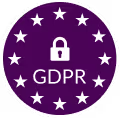Self Management Skills
Trends like ‘work from home’ have led to a renewed focus on self-management skills. But even employees in a traditional work environment benefit from developing their ability to work independently. L&D programs are one of the most effective ways to help employees at any level be more autonomous.
What Are Self-Management Skills?
Self-management skills enable employees to function with minimal input from superiors or assistance from peers.
The level at which any worker is independent will vary according to their role. An engineer on a team may need to meet frequently with and get input from, other engineers. In comparison, a salesperson might create all of their own leads and manage the entire sales cycle. However, there are certain basic self-management skills that all employees should grasp.
What Are the Benefits of Effective Self-Management?
Self-management is beneficial both for organizations and employees.
One of the main goals of any hiring process is to ensure that the employee will be successful in their role. “Successful” includes the assumption that they will require minimum guidance. An employee who needs constant corrections, reminders, and explanations is a drain on resources. According to McKinsey, middle managers spend approximately 28% of their time on supervising employees. If this amount of time is minimized, managers can concentrate more on other tasks.
At the same time, employees greatly prefer the approval of management. An employee who attracts negative attention is often as unsatisfied as their managers are. Constructive criticism is a part of the employee-manager relationship, but after a certain point, it is up to the worker to ensure good performance. This can be accomplished through self-management skills.
Another advantage of good self-management skills is that they contribute to personal development. There is a strong relationship between efficiency at work and the work-life balance. People who have difficulty managing their personal life also have trouble focusing on their jobs and show a high rate of absenteeism. At the same time, when an employee can’t finish a task on schedule, they often work outside of their official working hours, and so they don’t get home on time. In contrast, when an employee is more proficient at managing both their personal and professional lives, there is less interference on both sides.
Lastly, workers who are independent can prove their ability to take on more responsibilities. Managers are constantly searching for top employees to promote, suggest for leadership skill courses, and include in a succession plan. By showing strong self-management skills, a worker demonstrates that they are ready to move up.
Developing Self-Management Skills
The emphasis on self-management skills has increased since the onset of COVID-19, as many people switched to a hybrid work environment. With so many employees working from home, and without a normal management presence, the burden of responsibility has fallen directly onto workers.
In turn, the challenge of developing self-management skills is an important part of the HR/L&D team’s activities. Self-management skills tend to fall within other categories of workplace skills related to, for example, productivity and time management. For this reason, the types of development programs that are used for these specific skills can also be applied to self-management abilities.
One important factor in all of this is accountability. Some self-management skill gaps are caused by the individual lacking the resources to change what can be personal habits. With a coach, however, the employee gains a greater sense of accountability that can greatly increase the chances of them reaching their skill development goals. Accountability Coaches and Results Coaches are professionals who specialize in handling exactly these types of issues.
Customization Is Key
The problem is the customization of these programs. As explained below, there are a large number of skills associated with self-management. It is simply not practical to have every employee go through a course for each skill. This strategy would take too much time and involve an immense number of resources.
Perhaps more importantly, however, is that employees as a group don’t need so many courses. The recruiting process at a company should have a skill-based focus, which ensures that new hires have many of the soft skills that are part of self-management. Of course, nobody is perfect, and over time, most employees are sure to demonstrate weakness in some areas of skill. At that point, L&D which is customized to address those specific gaps comes into play.
Talent Development Platforms
The process of running customized learning and development courses is not easy for various reasons (particularly for large companies). Challenges include:
- Knowing the exact area of upskilling requirements for each employee
- Finding an expert (trainer, coach, or mentor) who is available, offers an acceptable fee, and rates highly to teach that skill
- Arranging an L&D schedule that fits the requirements of the expert and the employee (which might involve the employee’s direct manager)
- Evaluating the quality and outcome of the course and the ability of the expert
That’s why many organizations turn to talent development platforms. This is a company-wide technology that is accessible to all stakeholders so that they can coordinate development needs, form schedules, and use course evaluation features. Talent development platforms enable access to a worldwide group of experts, which maximizes the number of highly graded instructors from whom to choose. Finally, they are capable of granular skill taxonomy, which is essential in designing personalized L&D initiatives.
Self-Managing Also Works in Groups
In some companies, the idea of self-management is extended to cover groups. They are created, given assignments, and evaluated by managers. But in terms of day-to-day operations, self-managing groups are on their own.
There are significant advantages for companies that use this low level of control. It leaves managers free to attend to matters that depend on their participation; decreases micromanaging; highlights the leadership abilities of specific employees; and promotes creativity. According to the Harvard Business Review, self-managed teams increase performance by almost 30% after the conclusion of a change initiative.
This type of organization depends on strong self-management abilities for the whole group. Companies that are considering using it should conduct a skills gap analysis and provide upskilling courses based on its results.
Examples of Self-Management Skills
At first glance, there are a large number of self-management skills. It’s important to keep in mind, however, that many business roles require a high number of abilities. According to one estimate, the job of a data scientist involves 37 skills.
In addition, some self-management skills have a degree of overlap. For example, time management and organization are related because employees can save a lot of time at the workplace by being orderly.
Focus
Distractions are a major concern, and employees are dealing with more of them than ever before. Mobile phones, online videos, and emails are just a few examples. According to this Economist Impact / Dropbox report, the average company in the US would see a 41% increase in economic contribution if employees would focus more. Learning how to concentrate and avoid distractions can lead to more time spent on important tasks. A course to improve focus might encourage employees to do one thing at a time, turn off their mobile device, and get more sleep. Focus is also a central component of time management.
Time Management
Time management skills include many elements such as planning, scheduling, prioritizing, dealing with stress, and record-keeping. When an employee has good time management skills, they are more effective individually and in teams. In fact, there is a critical “butterfly effect” in companies where employees know how to use their time wisely. It allows the organization to deliver on schedule, reduces expenditure on overtime pay, and minimizes the frustration that other employees feel when their tasks are delayed. The ability to efficiently allocate the hours of the day also lets people spend more time on personal issues. Despite these advantages, in general, most employees’ time-management skills are poor. Workers in the US spend almost three hours per day on non-work activities while on the job.
Organization
Remembering file locations, arranging a logical meeting schedule, and submitting tasks on time are all the results of an organized work life. It is estimated that, in the US, employees spend on average two hours a day looking for documents, information, or people. One interesting fact is the importance of physical order to being organized. According to both Indeed and BetterUp, good organizational skills begin with simple issues like maintaining a clean desk. Similarly, there are a variety of organizational tools that employees can use to keep them on track, such as messaging apps and project management software. Developing methodological thinking and the ability to prioritize are also essential.
Mindfulness
According to Forbes, mindfulness in the workplace “gives employees permission and a place to think”. Workers are often negatively affected by a hectic environment or overwhelming workload. Mindfulness allows them to avoid the confusion and stress created by such a situation. To achieve greater mindfulness, employees should practice certain exercises that slow their thought processes. In addition, they should be more cognizant of the demands of their tasks and scheduling, and understand when to say ‘no’ to more tasks. Additional ways to become more mindful are to adapt to stress, eliminate multitasking, and even adopt a Growth Mindset.
Stress Management
Stress management is a great example of a skill that is beneficial both in the workplace and in personal life. Similarly, it has a great deal of overlap with other self-management skills such as time management, problem-solving, and goal setting. Stress has become a major problem in the workplace in recent years. According to Gallup, frequent employee stress levels reached a record high in 2022 (44% compared to 31% in 2009). Employees can lower their feelings of stress by:
- Developing awareness of what causes stress for them
- Responding through healthy measures (exercise, diet, sleep)
- Using mindfulness as a way to set boundaries
- Getting support from friends, family, and therapists
It is also up to HR to keep track of employee stress levels. Managers are vital for this function. They can help by proactively checking how employees are feeling and encouraging workers to ask for assistance if they need it.
Emotional Intelligence
One of the skills that is consistently emphasized by HR professionals is emotional intelligence. According to Forbes, it is the most important leadership skill for any manager who needs to deal with employees. As stated by E&Y, the development of emotional intelligence will be essential in the future as a balance to jobs that eventually become part of artificial intelligence functions. Even though AI is constantly improving, there is little chance that it will ever replace the ability of people to understand human feelings. And yet, it seems to be a skill that is lacking in the general population, with only 36% of people having an effective level of emotional intelligence. The good news is, it is possible to develop this skill by enhancing abilities such as self-awareness, motivation, empathy, and general social skills.
Self-Awareness
Another area that shows a surprisingly low level of aptitude is self-awareness. In her book Insight, organizational psychologist Tasha Eurich explains that only 15% of people fit all of the criteria for this skill (whereas 95% of people believe that they do). She defines it as “the ability to see ourselves clearly. To understand who we are, how others see us, and how we fit into the world.” On the upside, employees who are able to increase their level of self-awareness will have a great advantage over others. One of the reasons why there is such a low level of this ability in society is what Eurich calls the “Cult of Self”, a culture that sees a person’s appearance as their most important asset. To counter this attitude, people need to develop a sense of personal values and be very aware of how others see them.
Goal Setting
Psychologists have also examined goal setting in the workplace as a factor in self-motivation. This is not the same as planning. Instead, goal setting usually refers to the professional objectives that an employee sets for themselves. Apparently, the vast majority of people fail both to set or obtain goals. This is an issue for HR to watch, because goal setting, self-motivation, and employee engagement are all connected. A worker who sets achievable professional goals will be more interested in reaching them, and so will be more interested in doing a good job. Both HR and managers can help employees set goals through career pathing programs, and through L&D in general, while also acting as “accountability partners”.
Professionalism
There is a saying about professionalism: “Professionalism is not the job you do, it’s how you do the job.” It is also known as “work ethic”. A professional attitude implies task ownership, emotional control, and the taking of initiative. Someone who acts in a professional manner tries to keep strong feelings out of any workplace arguments, and gives any task their best effort, no matter where they are on the corporate ladder. This skill can exist regardless of whether the employee is considered a “professional” because even part-time shift workers can act in a professional manner.
Self-Motivation
A concept that is close to professionalism is self-motivation. Employees with a strong work ethic simply want to do a good job out of a sense of pride, which is a form of self-motivation. But what causes it? Separating external motivational factors from internal ones can be confusing. For instance, if non-monetary perks influence employees to stay at work longer, is that really self-motivation? HR can use various moves to maximize self-motivation in the workplace, such as:
- Hiring those who have a history of being self-starters, for example, entrepreneurs, people with an extensive volunteer history, veterans, and top-level athletes
- Ensuring that role models are part of the company culture, specifically, employees who have overcome hardships or have made notable contributions to society
- Creating a Growth Mindset culture which sees learning (and even failure) as an opportunity in itself
Decision-Making
According to McKinsey, there are four levels of decision-making skills:
- “Big bets” that are risky and will affect the nature of the organization
- “Cross-cutting”, which are essential decisions made frequently, often interconnected, and dependent on teamwork
- “Delegated”, which also occur frequently but are not critical and so can be referred to lower-level employees
- “Ad hoc”, which are seldom made and relatively minor
Each type of decision requires a certain mix of different skill elements, which can be categorized as:
- Exploring a solution on an experimental basis
- Examining and analyzing data
- Looking at the cost/benefit or pros/cons of each option
- Relying on consensus (note: self-managing groups are relevant in the case of consensus, not individuals)
Problem-Solving
Speaking of consensus, another vital self-management skill is problem-solving. There are two essential types: internal and external. An internal organizational problem often leads to conflict, and can be solved by the individual through things like collaborating, compromising, taking charge, and avoiding. Each of these approaches is complemented by a number of skill types, such as leadership, communication, and analysis. On the other hand is external problem-solving, where issues that are somewhat beyond the control of your organization need to be addressed. Examples include economic events, supplier shortages, and new competitors. In the case of external problems, teamwork skills form a critical tool, and so they are an aspect of self-managing groups.
Adaptability
With recent crises like COVID-19, the recession, and the Great Resignation, adaptive skills are more in demand than ever. They are also the basis of adaptive leadership skills. Adaptive skills can be applied in:
- Reactive situations caused by unexpected developments
- Proactive situations where the employee must rapidly become accustomed to a new situation
Adaptive skills are naturally related to other self-management skills such as decision-making and problem-solving. Additionally, they are an integral aspect of change management initiatives that can occur in response to emergencies, expansion, or gradual strategic change.
Critical Thinking
Critical thinking can be defined as “criticizing or investigating ideas in order to refine several options and reach the best one,” and they are usually related to teamwork skills. But individual workers can also exercise critical thinking when it comes to their own ideas. It is truly a challenge to deal with “egocentric bias” as a way to be as objective as possible. However, tools like a SWOT analysis can “force” the individual employee to evaluate their ideas from different perspectives. In addition, the common practice of taking a break during the critical thinking process can help reduce “decision fatigue”.
Communication
Of all workplace skills, communication is probably the most complex – and important. Communication skills can be described in many ways:
- Audience: coworker, superior, client, subordinate, group, team
- Medium: written, presentational, conversational, argumentation, and even body language
- Method: emails, feedback forms, work plans, short messages, instructions
There is a great likelihood that, as an employee works their way towards a managerial position, they will need to use most of these communication styles. There is an even greater chance that the employee will not be proficient in every situation. In order to understand where employees need to improve, and then train them to the required level, it’s often a good idea to use a communications coach.
Let Growthspace Lead Your Self-Management Skill Development
With a global network of world-class L&D experts, Growthspace’s talent development platform helps employees at all levels find and work with coaches to enhance their self-management skills. Through its comprehensive database, Growthspace connects people with professionals who are experienced in the latest coaching concepts and self-management techniques. With its technology-based approach to soft skills training, Growthspace is the leading choice for organizations in need of a new approach to building effective L&D programs.















